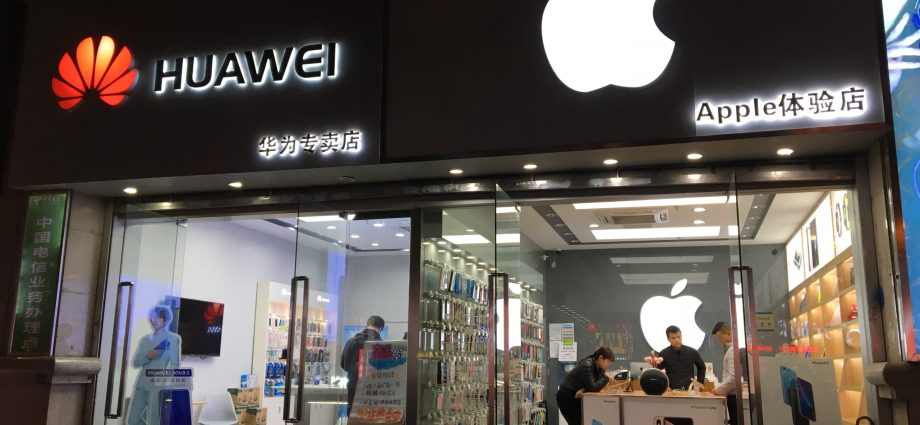In March, Tim Cook was part of the initial group of foreign executives to arrive in Beijing for high-level meetings, shortly after pandemic-related restrictions were lifted. During this visit, Apple’s CEO praised the mutually beneficial relationship that had developed between the company and China.
Fast forward six months, and this once-stable relationship is now facing significant challenges. Apple is grappling with new competitive pressures in China, a nation that not only serves as its primary manufacturing hub but also constitutes its largest international market, accounting for nearly 20 percent of its last quarter’s sales.
A recent sell-off of Apple shares led to a staggering $200 billion reduction in the company’s market capitalization. This came on the heels of reports that various government agencies had imposed bans on the use of Apple products within government departments and state-owned enterprises. While the Ministry of Foreign Affairs denied any formal prohibition, it made reference to iPhone-related “security incidents” and called on smartphone manufacturers to adhere to the law.
The United States expressed concern over these developments, with a spokesperson from the White House’s National Security Council suggesting that China’s actions seemed to align with retaliatory measures against other U.S. companies as tensions escalated between the two superpowers. Apple declined to comment on the situation.
So far, Apple has managed to maintain a privileged position in China, avoiding the fate suffered by other U.S. tech giants like Google, Meta, Twitter, and Micron, whose products have been subject to restrictions or outright bans.
Tim Cook, who has served as Apple’s chief executive since 2011, has been hailed as the “architect” behind the company’s shift in production to China. He was originally hired by Steve Jobs in 1998 to oversee worldwide operations. Under Cook’s leadership, Apple has invested heavily in building relationships with both central and municipal governments in China, notably in Zhengzhou, where partnerships with Foxconn have created hundreds of thousands of jobs. The company has also demonstrated a commitment to complying with local regulations, even removing politically sensitive apps when necessary.
In addition to concerns about potential limitations on Apple products, a new competitive threat has emerged in the form of a surprise launch of a new Huawei smartphone in China at the end of August. The Mate 60 Pro quickly sold out, riding a wave of patriotic enthusiasm, as experts discovered it was powered by advanced Chinese chips. Previous U.S. sanctions against Huawei had hampered its smartphone capabilities, allowing Apple to dominate the high-end smartphone market in China.
Apple’s shares faced further declines following the somewhat underwhelming launch of the iPhone 15 series. However, industry experts believe that the recent drops in share prices due to events in China may have been overstated.
Gene Munster, managing partner at Deepwater Asset Management, speculated that the worst-case scenario would involve a government ban reducing global iPhone sales by 2 percent and overall revenues by 1 percent in 2024. Reports indicated that restrictions on government employees using Apple devices had been in place for several years.
Paul Triolo, an associate partner at the advisory group Albright Stonebridge, asserted that Beijing would be cautious about taking further actions that could weaken Apple’s position in China, as this would negatively impact the business climate. He emphasized that the Apple-China relationship had been mutually beneficial, as it had raised the production standards of Chinese manufacturers while safeguarding Apple’s intellectual property through supply chain diversification. This strategy ensured that no single supplier could replicate Apple’s products.

